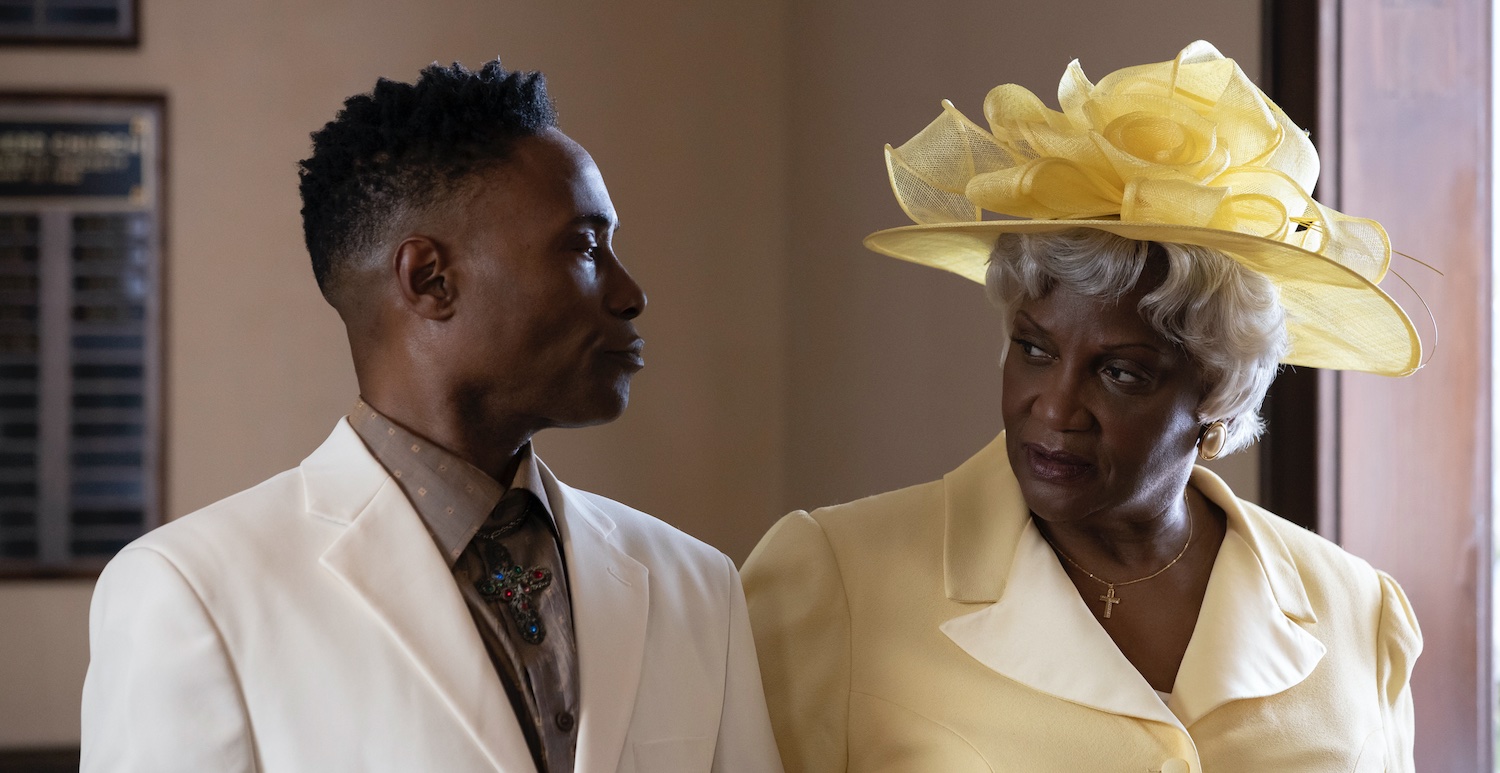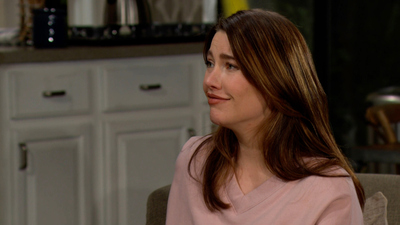What to Watch Verdict
While the episode is essentially a showcase for Billy Porter — who makes the most of it — the showrunners use his past to spotlight, and examine, some poisonous but well-intentioned attitudes about religion and sexuality.
Pros
- +
👠 In a season full of unforgettable moments, 'Take Me To Church' feels like a nonstop awards-show reel for Porter, whose performance of "This Day" is a showstopper.
- +
👠 While the visit's purpose is to give Pray closure about his past, the show's willingness to resolve old conflicts with some ambiguity — and even disappointment — feels both dramatically compelling and realistic.
Cons
- -
👠 Still, there are a few relationships here — especially Vernon, as Pray's first love — that unfold with a bit more wish fulfillment than might be believable.
This post contains spoilers for Pose.
Check out our last review here.
As Sananda Maitreya sings “As Yet Untitled,” Pose's Pray Tell (Billy Porter) struggles through another sleepless night; despite completing rehab, he wakes up over and over again in a cold sweat. Unfortunately, a visit to the doctor brings bad news: he’s been diagnosed with AIDS-related lymphoma. With no treatment options that won’t kill him along with the cancer, he’s given six months to live. But as Blanca (MJ Rodriguez) and Judy (Sandra Bernhard) contemplate other options, Pray decides to make the most of whatever time he has left. “I have to tell the people I love that I love them,” he says simply.
Pray takes the bus to his hometown outside Pittsburgh to visit his mother Charlene (Anna Maria Horsford) and Aunties Latrice (Janet Hubert) and Jada (Jackee Harry). After a catfish lunch, he delivers the news; his mother leaves in tears, and he soon begins debating Latrice about the religious beliefs that estranged him in the first place. “You think it was a choice to be called faggot and get beat every day of my childhood? You think it was a choice to lose every man I’ve ever loved?” They reach an uneasy stalemate, but Jada promises she will be with him until the end before going to find his mother. Latrice, on her way to church for choir practice, invites him to meet the new pastor, Vernon Jackson (Norm Lewis).
Pray’s enmity towards the church hasn’t changed, but the music disarms him just as Vernon arrives. He is surprised — or maybe he isn’t — to discover that Vernon is happily married with children, to his childhood best friend Ebony, no less. But their rift goes deeper than a jilted relationship; Pray resents that his former lover sided with a church that discarded him, even more than the fact that Vernon seems to have suppressed, or repressed, his sexuality to capitulate to that church. Quoting scripture, Vernon invites Pray to dinner, which he reluctantly agrees to.
At his mother’s home, Pray receives a less warm welcome from Charlene, who praises Vernon for supporting her after Pray left home. “You have no idea how hurtful it is to have a son who turns his back on everything you taught him,” she says. But Pray reminds her that her ex-husband used to abuse him, until he got old enough to defend himself, anyway. “Why don’t you just move on,” she asks him. Pray says that he has, but it’s clear that there’s too much hurt and too much unresolved feeling for that to truly happen, especially with Charlene excusing and rationalizing and casting blame — and accepting none of her own.
Dinner gets interrupted when Vernon is called away, but Pray and Ebony catch up while cleaning the dishes. He observes that she could have had any man in town, but she insists that she believes in her marriage — or marriage, anyway. “I don’t want to rock this boat,” she says, before asking Pray to guide her on how to pleasure her husband. A frank discussion ensues not about the inner workings of his relationship with Vernon, but the church’s damaging attitudes about staying in a relationship at all costs, even if it means a marriage to man who is in denial about his homosexuality. “The more we hurt, the closer we are to God,” Ebony insists. “Your god sounds like a real asshole,” retorts Pray.
When Vernon arrives home, he and Pray take a walk, and he admits how much he’s missed Pray. “Seeing you again… you have reawakened something within me,” Vernon admits. Despite Pray’s reminders about his wife and children, Vernon kisses him; “I was there with you in the beginning,” Vernon says. “Let me be there for you in the end.” Reluctantly, doubtfully, Pray tells him he’s leaving Sunday on a bus back to New York. Vernon says he’ll be there, but Pray isn’t so sure.
When Pray arrives back at his mother’s house, they talk about the secrets everyone else in this community hold and seem to believe no one else knows about. “Because peace is more important than truth,” Charlene says. Pray suggests it’s that lying that keeps them alive. “But I need you now, Mommy,” he confesses. Treafully, she responds, “I know I did wrong by you… I knew there was nothing wrong with my beautiful, headstrong boy.” She asks him about his god. “He is kind, he is loving, he is forgiving,” Pray explains. She encourages him to join her at church — to sing, if nothing else. “My god gave you that gift,” she observes.
The next morning, Latrice calls him up to join the choir. He delivers a rousing performance of “This Day,” and watches as his family and friends rise from their pews, inspired by the power and sincerity of his voice. During a meal of chicken and waffles afterward with Jada, she begs for forgiveness, admitting she knew what Pray went through with his stepfather, and assuring him that she will be by his side in his last days, so he can feel his family’s presence. Moreover, she asks him to sign power of attorney to her so she can guarantee he gets everything he wants — in death, if not in life. He asks to die quietly in his home, and after being cremated, he wants Jada to put the ashes in heart-shaped lockets for him to give out — but not to everyone. “There’s this bossy bitch named Elektra who’s going to think she deserves one of these lockets,” he says. “I want you to tell her that I said from the grave, she can kiss my entire ass!”
To no one’s surprise — but Pray’s mild disappointment — Vernon does not show up to join him in New York, much less wish him goodbye. It’s one of the season’s few moments thus far where a conflict was not resolved with an unwavering sense of wish-fulfillment; but it also underlines the difference between Pray and the rest of the people and his community and those from his church or in his hometown. For better or worse, the people in the ballroom community are living their truth, while so many others are suppressing it, or hiding it, ultimately, denying themselves the opportunity to be truly happy. If Pray had passed away upon finishing his solo, Pose would not just have earned its legacy, it would have burnished it. But with two more episodes to go, audiences seem to be in store for nothing short of a victory lap or two, and Pose continues to wrap up its world, and its characters’ lives, with an emphasis on the best outcomes for them, and an example for their real life counterparts to strive for.
Todd Gilchrist is a Los Angeles-based film critic and entertainment journalist with more than 20 years’ experience for dozens of print and online outlets, including Variety, The Hollywood Reporter, Entertainment Weekly and Fangoria. An obsessive soundtrack collector, sneaker aficionado and member of the Los Angeles Film Critics Association, Todd currently lives in Silverlake, California with his amazing wife Julie, two cats Beatrix and Biscuit, and several thousand books, vinyl records and Blu-rays.












